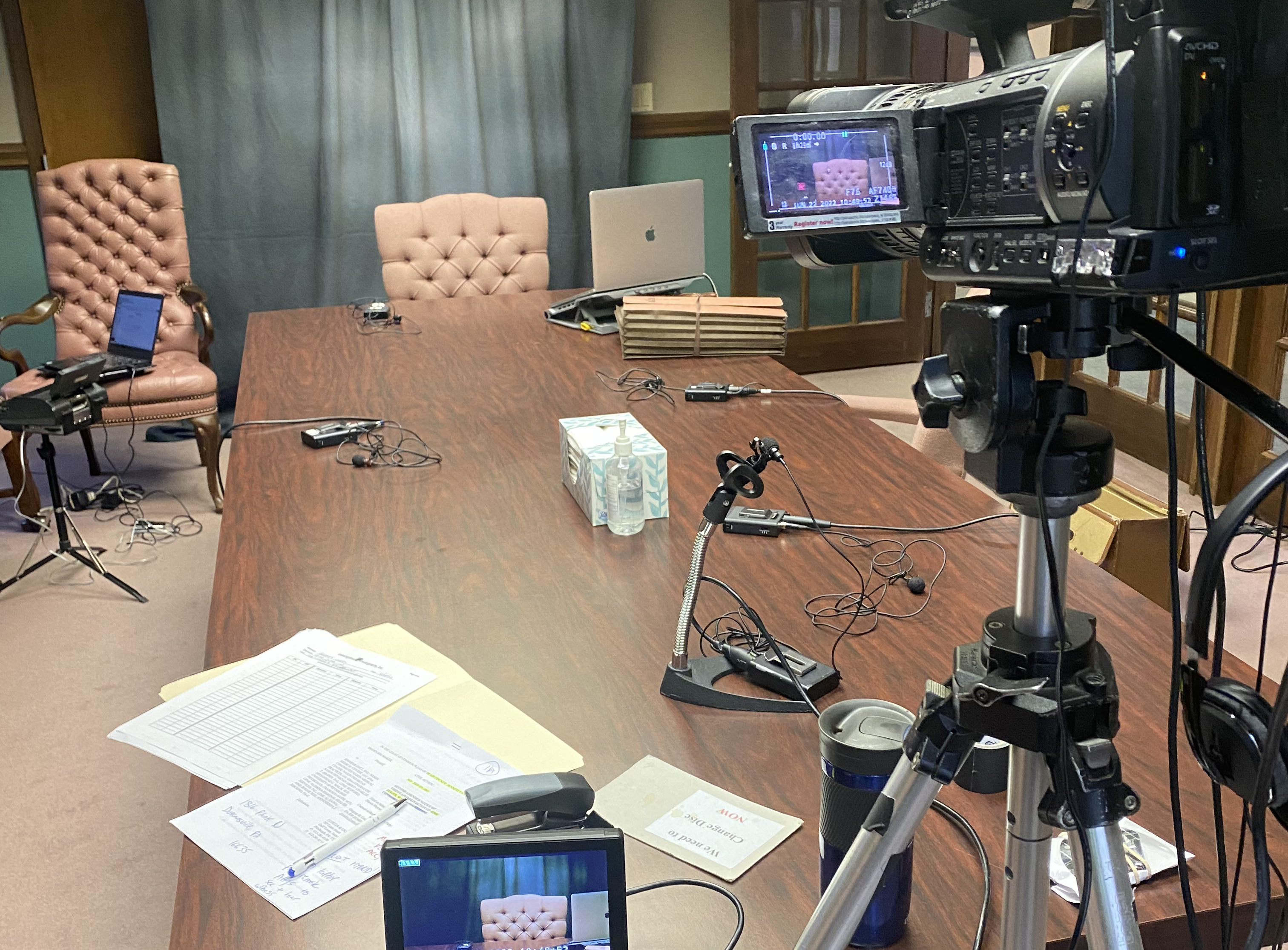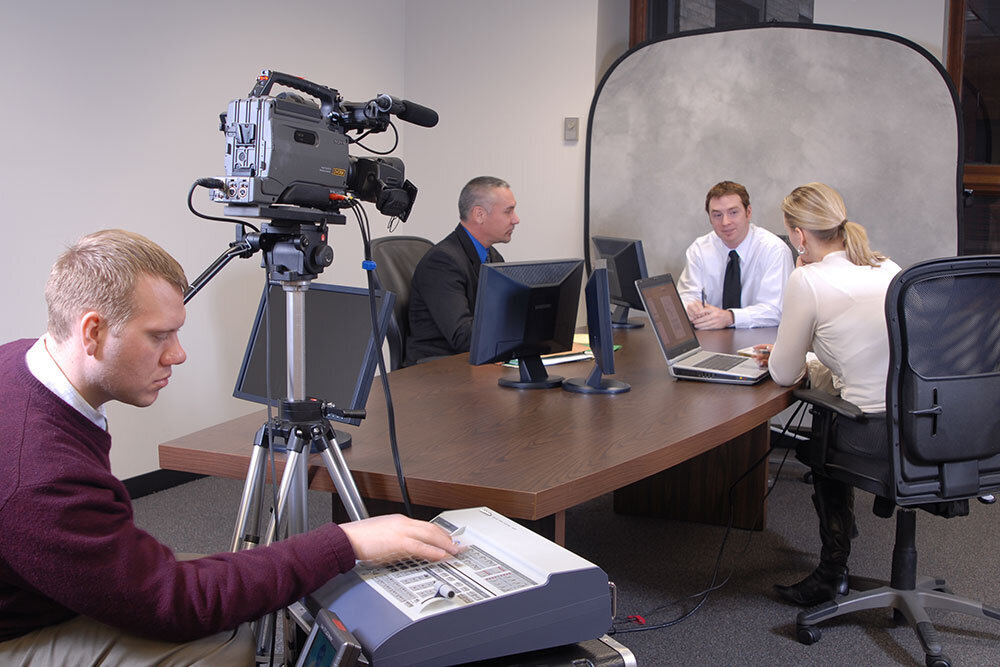How legal video depositions assist in reaching favorable settlements
Wiki Article
The Relevance of Lawful Video Clip Depositions in Modern Legal Solutions: What You Ought to Know
Legal video clip depositions have become crucial in today's legal landscape. They provide a multidimensional sight of witness statements that traditional records merely can not match. By recording both non-verbal and verbal interaction, these depositions improve the overall understanding of a witness's credibility. Nonetheless, the effectiveness of video clip depositions depends upon numerous aspects, including conformity with legal criteria and finest techniques (legal video depositions). Exploring these aspects exposes their real relevance in modern legal servicesWhat Are Legal Video Clip Depositions?
Lawful video depositions act as an important tool in the lawsuits procedure. They involve taping witness testimonies in a video clip format, catching both spoken and non-verbal interaction. This technique allows attorneys to document the disposition, expressions, and reactions of witnesses, giving a richer context for the testament. Typically performed in a regulated atmosphere, these depositions are led by lawyers who ask concerns while a court press reporter records the dialogue. The resulting video clip can be vital for test preparation, as it enables lawyers to analyze the integrity of witnesses and improve their techniques. Furthermore, lawful video depositions can be used in various lawful contexts, ranging from civil disagreements to criminal instances. The aesthetic and acoustic elements of video depositions enhance the presentation of proof, making it an important part in the modern-day legal landscape. Generally, they add considerably to the effectiveness and effectiveness of lawful procedures.
Benefits of Video Clip Depositions Over Conventional Approaches
Video clip depositions supply numerous advantages compared to standard techniques of taking witness testimonies. One considerable benefit is the capacity to record both aesthetic and audio components, providing an extra complete record of the witness's declarations. This double style boosts clearness and enables lawyers to reference certain subtleties during trial prep work. In addition, video depositions promote remote involvement, making it simpler for witnesses who may be unavailable for in-person appearances because of geographical constraints or health issues.Moreover, video clip depositions can accelerate the total deposition procedure, reducing the time and costs related to travel and logistics. They additionally boost ease of access, as tape-recorded depositions can be conveniently shared among lawful teams and referenced any time. This benefit adds to better instance administration and preparation. In general, video depositions stand for a modern, reliable method to gathering witness statements, aligning with the evolving needs of the legal profession.The Role of Body Language and Tone in Testimonies

In lawful video clip depositions, body movement and tone play vital roles in sharing a witness's reliability and trustworthiness. Nonverbal signs can offer insights into a witness's mood, influencing how their testimony is perceived. Understanding the effect of these components is essential for attorneys and jurors alike when reviewing the integrity of a statement.
Nonverbal Interaction Insights
While spoken interaction is usually stressed in lawful testimonies, nonverbal cues such as body movement and tone play a vital role in sharing reliability and emotion. Observers of depositions might note that a witness's pose, motions, and face expressions can significantly affect understandings of integrity. Consistent eye get in touch with may indicate confidence, while preventing look could recommend deceit or discomfort. The tone of voice-- its volume, speed, and pitch-- can give feelings of sincerity or unpredictability. Lawyers must be attuned to these nonverbal signals, as they commonly offer vital context that enhances talked words. Recognizing these nuances can enhance the performance of depositions and affect the outcome of lawful procedures.Psychological Tone Impact
The emotional tone conveyed during legal testimonies considerably affects exactly how a witness is perceived. Body language, singing inflections, and facial expressions play crucial roles fit the story of a statement. A witness exhibiting self-confidence with constant eye call and a calm tone can instill a feeling of reliability and engagement. Conversely, signs of stress and anxiety, such as fidgeting or an unstable voice, may cause uncertainty concerning their account. The subtleties of emotional expression can affect the interpretation of realities, making it important for attorneys to acknowledge these signs. In video clip depositions, the visual and acoustic elements integrate, highlighting the significance of psychological tone in conveying genuineness and reliability within the lawful procedure.Reputation and Reliability
A crucial aspect in establishing reputation and dependability throughout testimonies hinges on the witness's body movement and intonation. Onlookers usually count on non-verbal signs-- such as eye get in touch with, posture, and gestures-- to evaluate a witness's genuineness. A witness who preserves eye contact and shows open body language may be perceived as even more honest and trusted than one who avoids eye call or appears shut off. Additionally, tone of voice plays an important duty; a steady, calm tone can enhance the credibility of the testimony, while variations in pitch or quantity may raise uncertainties. Inevitably, the combination of body movement and singing tone greatly affects just how a witness's statements are gotten and interpreted in a lawful context.Best Practices for Performing Video Clip Depositions
Conducting video depositions calls for cautious preparation and execution to assure a effective and clear discussion of statement. First, it is very important to select a quiet, well-lit place to minimize disturbances and safe and secure optimum video top quality. The equipment should be checked in breakthrough, consisting of video cameras, microphones, and lighting, to stay clear of technical issues throughout the deposition.Next, celebrations involved should assess the style and procedures ahead of time, seeing to it that everybody comprehends their functions. The deponent needs to be oriented on the procedure, consisting of just how to respond clearly and concisely.Additionally, maintaining a specialist behavior throughout the session is crucial. This includes avoiding talking over one another and validating that all inquiries are routed appropriately. It is vital to tape the deposition in a format that allows for simple playback and evaluation, preserving the stability of the testament for future use.Legal Considerations and Conformity Issues
How do legal considerations and compliance problems affect the effectiveness of video depositions? Lawful specialists should navigate a complex landscape of policies, their website making sure that video clip depositions abide by jurisdictional rules and requirements. Conformity with regulations concerning privacy, consent, and taping approaches is essential. Acquiring specific approval from all events entailed is essential to prevent legal repercussions.Additionally, the admissibility of video proof in court can hinge on conformity with step-by-step demands. Making sure that the tools made use of satisfies technical criteria is additionally crucial, as inadequate top quality can undermine the deposition's reliability.Moreover, attorneys need to understand any kind of specific state regulations that govern video depositions, as these can vary significantly. Failure to attend to these factors linked here to consider can not just endanger the honesty of the deposition yet likewise influence the overall situation technique, inevitably affecting the customer's legal end results.Exactly How Video Clip Depositions Influence Jury Assumption
While video clip depositions can offer as effective tools in lawful process, their influence on jury understanding is considerable. The aesthetic and auditory components of video clip recordings supply jurors with a more comprehensive understanding of witness behavior, credibility, and psychological reactions. This multimedia method can improve the jurors' ability to examine the dependability of testimony compared to conventional text-based transcripts.Moreover, video clip depositions allow jurors to observe body language, tone of voice, and faces, every one of which can influence their analysis of the witness's declarations. The existence of a witness on screen can humanize them, cultivating empathy and connection, which might sway jurors' point of views. Conversely, a witness that shows up evasive or undependable on video description might lead to unfavorable assumptions that influence a court's choice. Eventually, the dynamic nature of video depositions plays an essential role in forming exactly how jurors analyze evidence and reach their decisions.The Future of Video Clip Depositions in Legal Method
As improvements in technology remain to reshape the legal landscape, the future of video depositions is positioned for substantial advancement. Developments such as expert system, virtual fact, and improved video clip conferencing devices are anticipated to enhance the deposition procedure and boost ease of access. Lawful specialists might make use of AI-driven analytics to evaluate witness reliability and case toughness a lot more effectively.Moreover, the combination of digital fact can allow juries to experience immersive simulations of depositions, supplying much deeper context and understanding. Additionally, the fad towards remote depositions is likely to continue, supplying greater adaptability for attorneys and clients alike.As remote work comes to be significantly stabilized, video clip depositions will likely become basic practice, reducing costs and time restrictions connected with traditional methods. In general, these technological developments promise to boost the performance, efficiency, and availability of video depositions in legal practice, eventually transforming just how attorneys plan for test.Regularly Asked Concerns
Just How Much Do Lawful Video Depositions Typically Price?

Can Video Depositions Be Made Use Of in Any Type Of Type of Situation?
Video clip depositions can be utilized in numerous kinds of situations, including civil, criminal, and family members regulation. Their versatility permits attorneys to present witness testimonies effectively, adapting to the certain requirements of various legal scenarios.What Equipment Is Required for a Video Deposition?
To perform a video deposition, vital tools includes a top quality cam, microphone, lighting, and a trusted recording gadget. Additionally, a computer with editing and enhancing software application might be required for post-production and formatting the last video.The length of time Does a Common Video Clip Deposition Last?
A normal video clip deposition lasts between two to 4 hours, depending on the complexity of the situation and the variety of inquiries presented. Prolonged sessions might take place, however breaks are typically integrated for individual comfort.

Are Video Clip Depositions Admissible in Court?
Video clip depositions are generally acceptable in court, given they adhere to legal criteria and rules of evidence. Their use improves clarity and protects witness testimony, aiding in the judicial process throughout trials and hearings. Lawful video clip depositions have actually ended up being crucial in today's lawful landscape. In addition, lawful video depositions can be utilized in numerous lawful contexts, ranging from civil disputes to criminal instances. In addition, video clip depositions facilitate remote participation, making it easier for witnesses that might be unavailable for in-person looks due to geographical restraints or wellness issues.Moreover, video depositions can quicken the general deposition process, lowering the time and costs linked with travel and logistics. Ensuring that the tools utilized meets technological standards is additionally crucial, as poor top quality can undermine the deposition's reliability.Moreover, lawyers should be mindful of any details state legislations that govern video depositions, as these can differ considerably. Additionally, the pattern towards remote depositions is likely to linger, providing better versatility for lawyers and customers alike.As remote job ends up being significantly normalized, video clip depositions will likely become common practice, minimizing prices and time constraints linked with traditional techniques.Report this wiki page